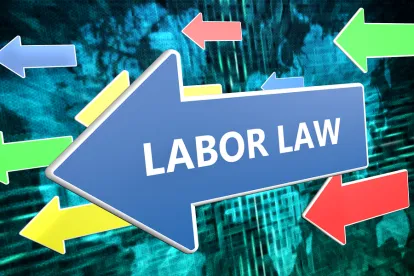That was according to a US economist, Thomas Sowell, but it also came up at a recent webinar we did on whistle-blowing and grievance investigations. We were talking about limits on the employer’s ability to use evidence from witnesses whose identities would not be disclosed to the person accused. The short point was that to act upon evidence against someone where that someone does not know who gave it, is to risk a serious undoing in front of the Employment Tribunal. Not every allegation requires the person accused to know who made it as a pre-requisite of being able to defend it, but many do, especially around bullying/ harassment or other behavioural issues.
But then “What about anonymous whistle-blowers?” popped up on the chat box thing, and it is a good question. Let us say that you receive a note in HR from an unknown email address or on otherwise unidentifiable paper. A named manager, it says, is a habitual bully and maker of sexist remarks, is having an affair with a number of customers and offering them less than commercial terms for your product, regularly drives when under the influence of narcotics, has failed to make the workplace Covid-secure and is thoroughly loathed by all his subordinates, hence a recent rash of departures.
Is that from a current employee? A contractor? A vengeful ex or disappointed business counterparty? Someone he sacked? In reality, it may not much matter – if those issues are genuine then the important thing is that you find out, and not from whom or with what motivation.
There will be some parts of these complaints on which you can form a view pretty quickly and potentially without anyone knowing. It should be possible to check the hard facts of the manager’s recent sales to see if any were made at a material under-value, for example. You might be able to look at team exit interviews for evidence of animosity towards him, perhaps in the knowledge that there is actually a third circumstance for the telling of the complete truth, i.e. when you no longer care.
However, you are clearly going to have to look into the bullying/sexist remarks question, since that may be affecting your staff, and the alleged health and safety failures as a possible breach of a legal duty. You must also pick up the drug-driving allegation, given both its criminal nature and the potential for hideous publicity for the business if he kills someone and it is found out that you were on notice.
You have no evidence of any of these, nor do you know where the complaints come from. This is a good position only in one respect, i.e. that it will be almost impossible for an anonymous complainant or whistle-blower to allege that he/she has been the subject of unlawful detriment in retaliation. But that is only relevant if you are proposing to retaliate, which is obviously not the best place to start when in receipt of allegations of this sort. In all other respects, the situation is rather stickier.
Realistically you have no option but to put the concerns raised to the manager head-on. You can admit freely that you do not know who has said these things, but at the same time should counsel the manager in writing not to try to work it out, and in particular not to take any retaliatory action against anyone he suspects.
In limited circumstances, it may be possible to look for corroborative evidence through seemingly innocent routes. The issue of department morale might be flushed out by some form of opinion survey, but that will obviously look very pointed if it is done only in one team. The same might be said of the sudden introduction of “random” drug tests in the workplace, or a health and safety audit which only covers one area.
If there is evidence that the manager is actually seen as a bit of a thug or has got too close to certain customers such that a perception of favouritism could reasonably arise, what then? Do you need to know who has made the complaint to raise these issues with the manager? For serious disciplinary action or dismissal, probably yes – those are potentially career-altering actions where fairness dictates a proper right to reply. However, if you are not going so far, potentially not. Managers told that their workplace behaviours are not well received within the team have some fairly limited options:
-
refuse to countenance the message at all because it is not backed by live examples;
-
refuse to heed the message because they do not accept it as correct;
-
accept the message as a word to the wise and seek to address those concerns as best they can, regardless of whether they accept them as valid or not.
Of these options, (iii) is clearly the most sensible, (ii) is understandable but short-sighted, and (i) is just plain foolish, leaving the manager badly exposed in the event of further complaints in future. They know whether what is said is true or not – requiring the company to prove it as a pre-condition of addressing it is not smart.
Ascertaining the truth from beyond the grave is a little outside the comfort area of most HR teams, but dealing with complaints made anonymously need not be. The ordinary principles of fairness, natural justice and acting within the band of reasonable responses will still apply. Indeed, you can make express reference to this in your grievance or whistle-blowing policy, not by declining to deal with disclosures made under cover of anonymity, but by a clear expectation-management statement that your ability to investigate and/or act upon them may be more limited than you would wish. If you add to that a proper reassurance that the makers of good faith complaints will not be subject to retaliation, you will have gone as far as you realistically can in that respect.




 />i
/>i
